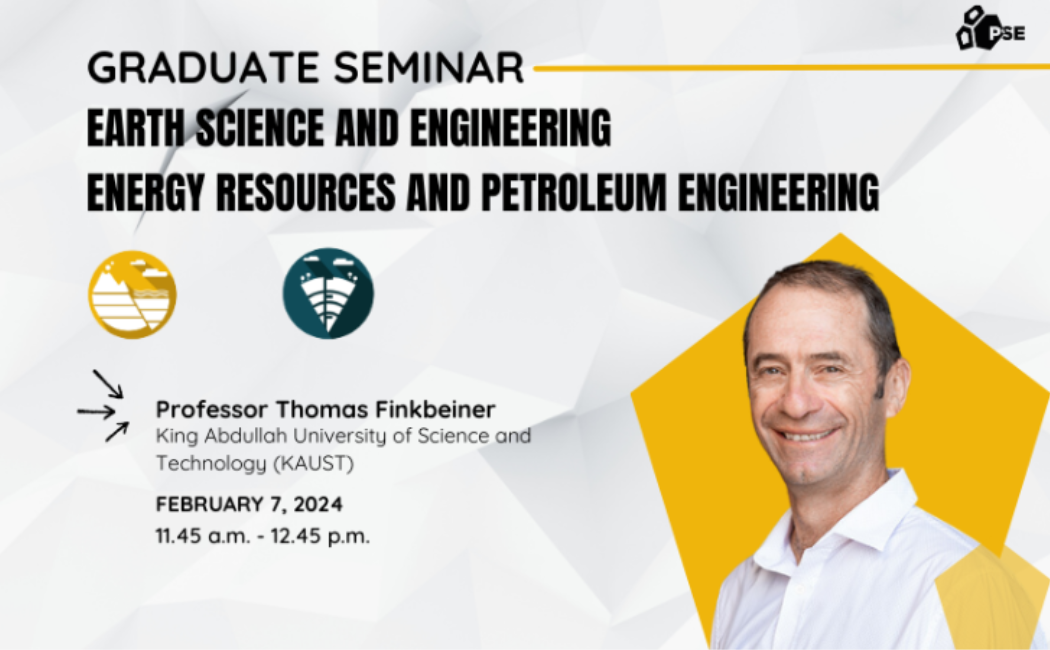.jpg?sfvrsn=1a62d0cb_0)
.jpg?sfvrsn=1a62d0cb_0)

Abstract
Geothermal energy is a natural resource with great socio-economic potential. For arid countries, such as the Kingdom of Saudi Arabia, with a continuously growing population, depleting fossil aquifers and stressed by the impact of climate change the dependency on fossil fuel consumption for desalination and cooling can be reduced using medium-enthalpy geothermal energy. To achieve this goal, KAUST faculty propose to demonstrate the Kingdom’s geothermal potential by drilling geothermal pilot wells on the KAUST campus and prove that sufficient flow can be achieved from brine aquifers in rift basin sediments situated along the Red Sea coast. Thus, the goals are to harvest green, clean, sustainable geothermal energy for desalination, district cooling and brine mineral extraction. The project has the potential to deliver results and technology to proof the feasibility for medium-enthalpy geothermal development in KSA, the Arabian Peninsula, and other countries with similar arid climates. In case of success, not only related research will be enabled but also longterm feasibility/reliability testing through a hook-up to university facilities of chilled water production and desalination. The long-term vision is that geothermal heat as well as cascaded energy extraction systems from such systems have the potential for scalable economic developments along the Red Sea Coast (and other regions in the Kingdom).
To develop and use geothermal energy, a variety of subsurface disciplines need to collaborate and acquire as well as process and analyze many different data types to quantify the geothermal potential of a given area (community) of interest. One important discipline in this process is geomechanics as it seeks to understand the controls on regional and local present-day stresses in sedimentary basins (and underlying crystalline basement rocks) and how these change in response to human intervention – in particular with a growing emphasis on sustainable subsurface exploitation and development including geothermal resource utilization.
There is an ever-increasing need for higher resolution, fit-for-purpose solutions, workflows, and modeling approaches to constrain present day subsurface stresses and minimize associated uncertainties. Building high fidelity geomechanical models greatly contribute towards uncertainty reduction, risk management and risk mitigation during the operational life of a geothermal well and field.
This presentation will detail the vision, mission, and main objectives of the KAUST Geothermal Exploration Project and the significance of its envisaged achievements in light of the Kingdom’s renewable energy plans. Furthermore, it will emphasize on the role of geomechanics in geothermal developments in general and present technical details that demonstrate its importance to be integrated into well design and field development plans.
Bio
Research Professor Thomas Finkbeiner (Ph.D. Stanford University) joined King Abdullah University of Science and Technology (KAUST) in January of 2016 in the Ali Al Naimi Petroleum Engineering Research Center (ANPERC). The focus of his research is in rock and geo-mechanics as well as rock physics for oil and gas but also renewable energies (in particular CCUS and geothermal).
Prior to joining KAUST, Thomas worked for over seventeen years in the petroleum industry mostly in the field of geomechanics and related applications. From 1998 to 2008 he worked for GeoMechanics International (GMI) where he managed and technically directed all of the company’s Europe, Africa, and Middle East operations. When Baker Hughes acquired GMI in 2008 he worked as Global Geomechanics Advisor. In 2011 he was awarded Baker Hughes’ Subject Matter Expert for Geomechanics. From 2013 to 2015 Thomas worked for OMV in Vienna (Austria) as Senior Geomechanics Expert and was responsible for fostering geomechanical understanding and application in OMV E&P worldwide.